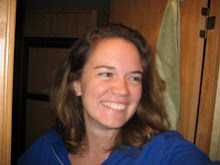I spent 10 days in mid-August on a Christian Peacemaker Team delegation. I have been thinking/hoping that my thoughts would sort out and make sense and then I could write about it. But that doesn’t seem to be happening, so I’m going to write about it and see if it works in reverse.
There were 11 of us who met and stayed in Kenora, Ontario. Kenora is in northwest Ontario about 2 hours from Winnipeg, Manitoba. During this week we were to listen, learn and be with the First Nations people in that area. We spent lots of time discussing effects of colonialism and our cultural norms that we take for granted and often impose on others unconsciously. We also met with many elders who shared their wisdom and teachings with us.
The first speaker we had was Larry Morrissette. Before his teaching we asked if we could take notes while he spoke. He paused before he answered, “Yes, as that is the way you are used to doing things. In our culture, an oral culture, it is the way to listen. At the end you will remember what you need to remember. The ideas, the themes, maybe not all the details, but the bigger picture.” I decided that I was here to try new things and learn in different ways so I didn’t take notes. (I did jot notes later and am quite grateful for those who did take notes as we shared after.) It is a different kind of listening I felt, more deliberate in a way.
Larry came to talk to us about the history of the First Nations and the dismantling of the culture by the colonization of the land. It is stated in the Indian Act that the laws were designed to eradicate the First Nations people.
“Our object is to continue until there is not a single Indian in Canada that has not been absorbed into the body politic, and there is no Indian question, and no Indian department.” ---1920, Duncan Campbell Scott, Deputy Superintendent General of Indian Affairs.
The First Nation was a fully functional culture centered on women and children. Some of the many different aspects of life were food-hunting and gathering to feed themselves, health-medicine men who could use the natural world to heal, rules and laws, spiritual beliefs. The colonizers came in and systematically disrupted each part of their world. They put restrictions on the hunting and gathering that caused them to be unable to feed themselves. They became dependant on the foreign government for food that was not always forthcoming. The colonizers put in place the chief and counsel governing body of the clans that were patriarchal instead of the matriarchal system that was in place. The diseases that the colonizers brought could not be treated by the medicine men and so they became dependent on the doctors and nurses of the colonizers who may or may not treat them. (this chart is one that gives more information on this.)
The views and policies of the government changed over the centuries. In the 1700s there were Protection Policies in which settlers were to leave the indigenous people alone. But then they decided they wanted the land and resources and in the 1800s the Civilization Policies came about in which it was illegal to be Native peoples. The 1900s brought the Assimilation Policies with residential schools and forced adoptions. Now there are the Sickness policies and that the indigenous people need to be healed.
Larry says, “I am not sick, I’ve been colonized.” It has taken time but they are reclaiming their culture. It is a slow process that will take generations to realize just as it took generations to break. The resilience that we saw in the people gives hope when many would rather chalk it up as a mistake—a colossal mistake—but they would like to say sorry and be done with it. But we can’t do that. We have a lot of work to do. We have a lot of learning to do. We have a lot of listening to do.
I will have more about this trip up on this blog soon. But if you’d like to read more, here’s the link to Allan Reeve-Smith’s blog about our time in Kenora and Grassy Narrows.
Wednesday, September 23, 2015
Subscribe to:
Comments (Atom)
